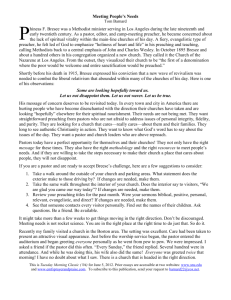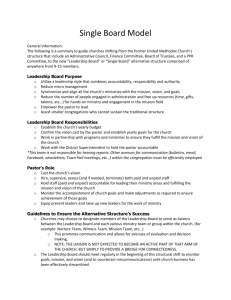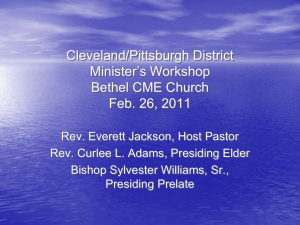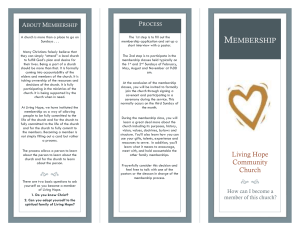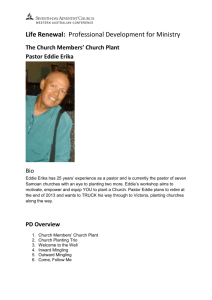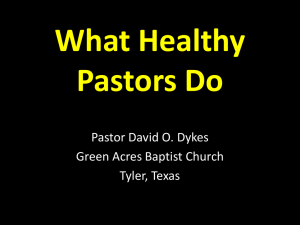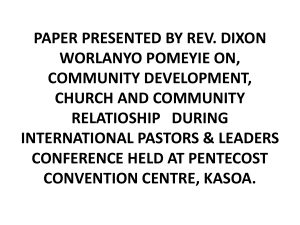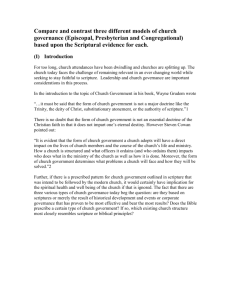Pastor or Preacher?
advertisement
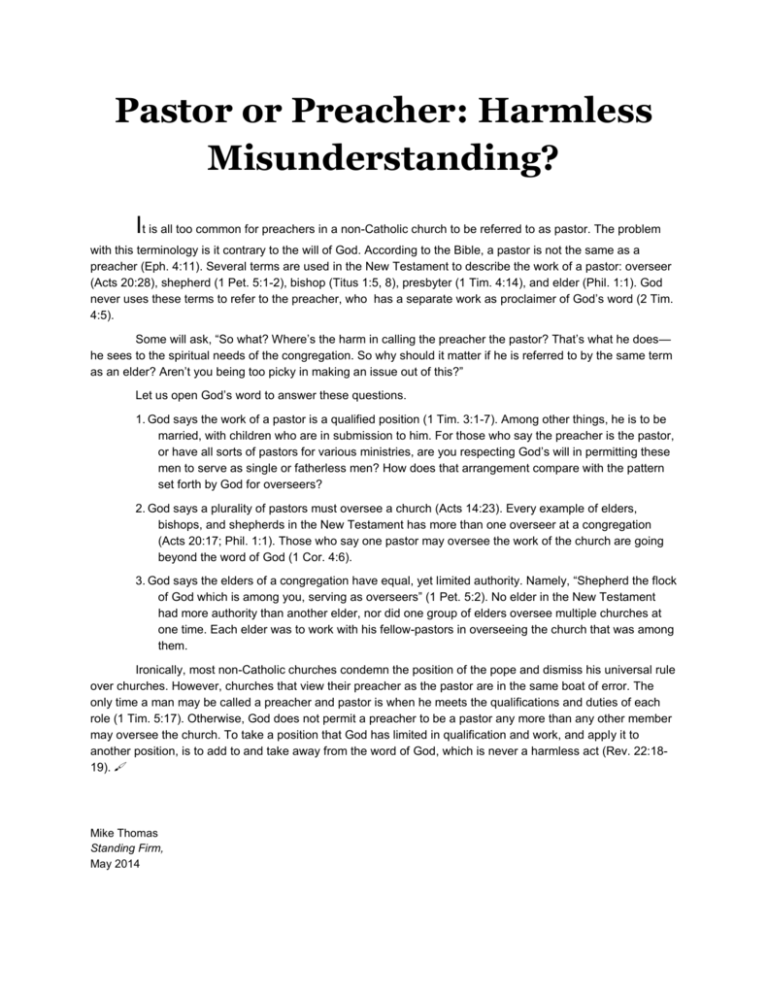
Pastor or Preacher: Harmless Misunderstanding? It is all too common for preachers in a non-Catholic church to be referred to as pastor. The problem with this terminology is it contrary to the will of God. According to the Bible, a pastor is not the same as a preacher (Eph. 4:11). Several terms are used in the New Testament to describe the work of a pastor: overseer (Acts 20:28), shepherd (1 Pet. 5:1-2), bishop (Titus 1:5, 8), presbyter (1 Tim. 4:14), and elder (Phil. 1:1). God never uses these terms to refer to the preacher, who has a separate work as proclaimer of God’s word (2 Tim. 4:5). Some will ask, “So what? Where’s the harm in calling the preacher the pastor? That’s what he does— he sees to the spiritual needs of the congregation. So why should it matter if he is referred to by the same term as an elder? Aren’t you being too picky in making an issue out of this?” Let us open God’s word to answer these questions. 1. God says the work of a pastor is a qualified position (1 Tim. 3:1-7). Among other things, he is to be married, with children who are in submission to him. For those who say the preacher is the pastor, or have all sorts of pastors for various ministries, are you respecting God’s will in permitting these men to serve as single or fatherless men? How does that arrangement compare with the pattern set forth by God for overseers? 2. God says a plurality of pastors must oversee a church (Acts 14:23). Every example of elders, bishops, and shepherds in the New Testament has more than one overseer at a congregation (Acts 20:17; Phil. 1:1). Those who say one pastor may oversee the work of the church are going beyond the word of God (1 Cor. 4:6). 3. God says the elders of a congregation have equal, yet limited authority. Namely, “Shepherd the flock of God which is among you, serving as overseers” (1 Pet. 5:2). No elder in the New Testament had more authority than another elder, nor did one group of elders oversee multiple churches at one time. Each elder was to work with his fellow-pastors in overseeing the church that was among them. Ironically, most non-Catholic churches condemn the position of the pope and dismiss his universal rule over churches. However, churches that view their preacher as the pastor are in the same boat of error. The only time a man may be called a preacher and pastor is when he meets the qualifications and duties of each role (1 Tim. 5:17). Otherwise, God does not permit a preacher to be a pastor any more than any other member may oversee the church. To take a position that God has limited in qualification and work, and apply it to another position, is to add to and take away from the word of God, which is never a harmless act (Rev. 22:1819). Mike Thomas Standing Firm, May 2014
